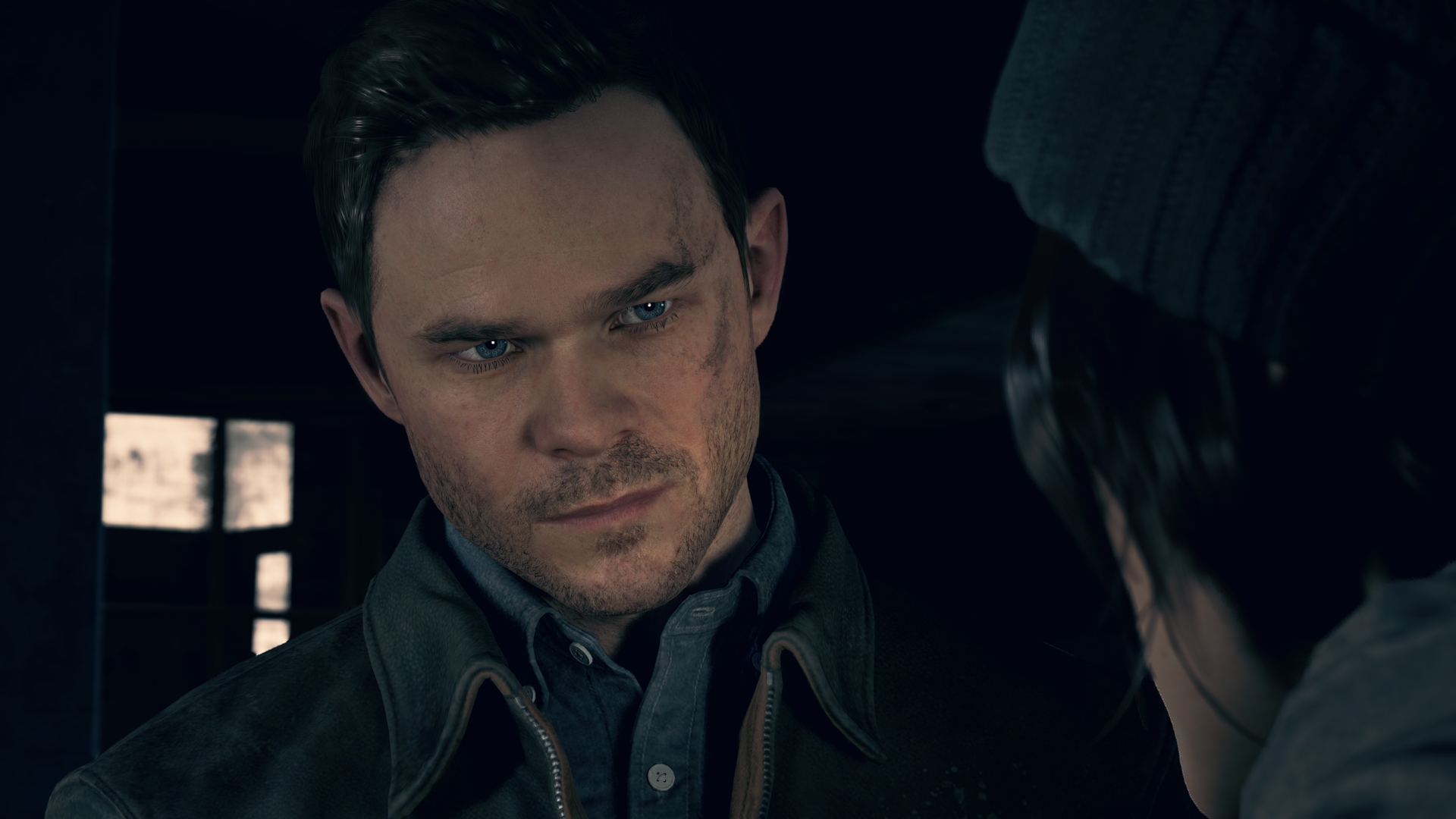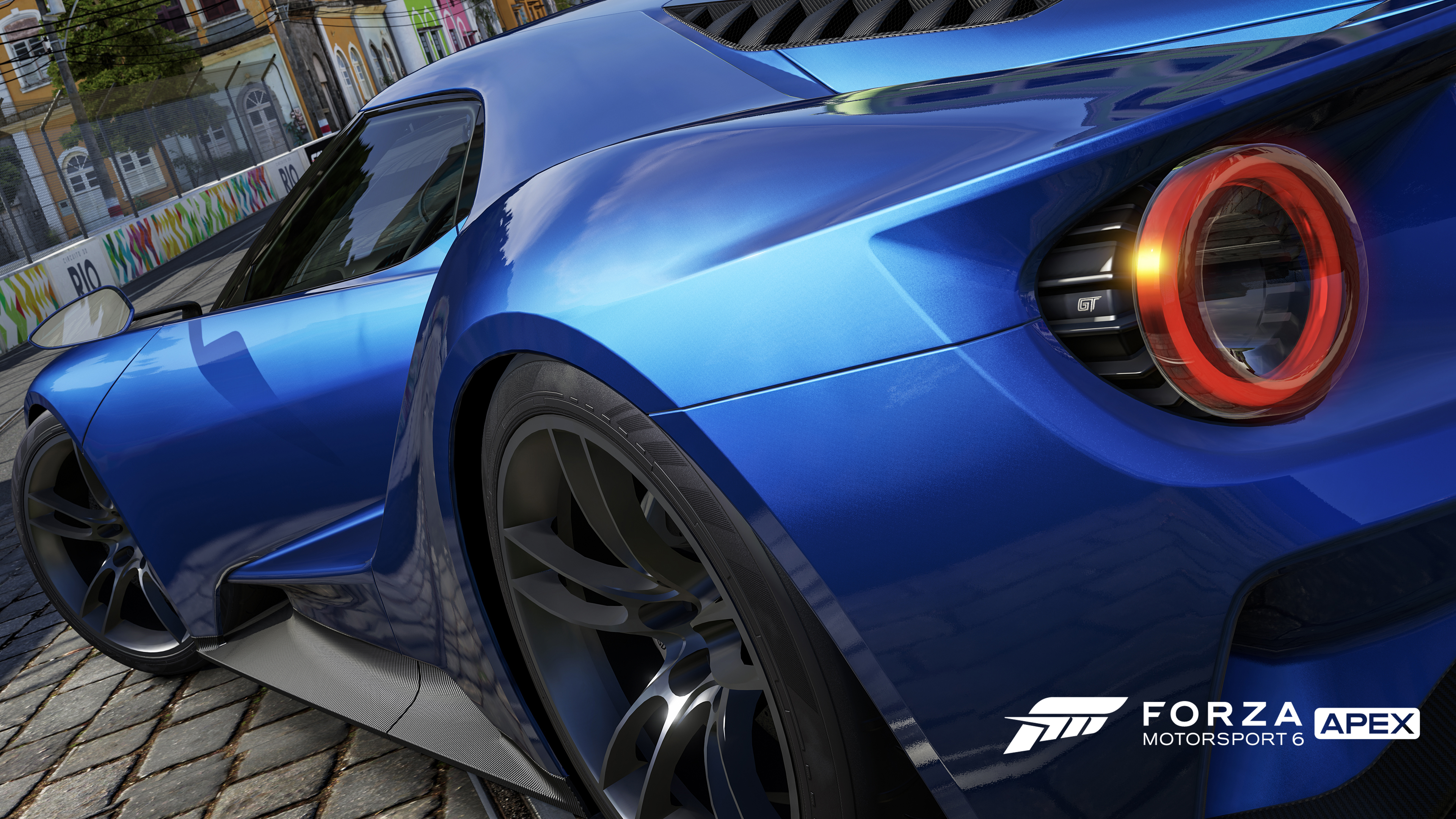Phil Spencer on Microsoft's PC plans: "I wouldn’t say our strategy is to unify"

Last week, Microsoft held its Xbox Spring Showcase—offering a look at some of its upcoming titles. The event was notable for its PC focus, with head of Xbox Phil Spencer talking about the studio's work on the Windows Store, and upcoming releases like Quantum Break and Forza Motorsport 6 Apex. I had a chance to catch up with Phil, and ask him about Microsoft's PC gaming plans.
Below, you'll find a truncated version of that chat. The full interview will be available in next month's PC Gamer magazine, out April 7 in the UK and April 26 in the US.
PC Gamer: From the talk this morning, it seems like the unification between the two platforms – Windows 10 and Xbox – is one of the things you seem to be working towards. Is that a fair assessment of your PC strategy?

Phil Spencer: I look at the work we’re doing on the platform as an enabler for us becoming relevant in PC gaming. I wouldn’t say our strategy is to unify, because when I hear ‘unify’ I worry a bit that people will interpret, my own teams included, ‘Hey, we just want to say a game is a game and all games should run everywhere.’
There are games I was talking about earlier, like Ashes of the Singularity, a fast-paced RTS game—probably not the best controller game, and I want to make sure those games are great. What I want to make sure is that gamers on our platforms, you feel like you have access to as many games as you can, and as a developer you feel like you have the tools and service to reach as many gamers as you can.
PCG: What characterises a PC game for you? If there are things that are more suited for keyboard and mouse, how does it work the other way? Which Xbox games are not good candidates for the PC?
Phil: You’ll laugh when I say this, but let’s say a Kinect game. Dance Central, probably not the best PC game. So I—and we’ve said it—I’m committed to bringing our biggest franchises to Windows and Xbox. I always hesitate to say ‘all’, because I think that inhibits creatively what could happen.
The biggest gaming news, reviews and hardware deals
Keep up to date with the most important stories and the best deals, as picked by the PC Gamer team.
I think there are a real two factors that today differentiate what I consider PC and console gaming. One is input. We’ve said we’re going to support keyboard and mouse on console, and clearly you can plug a controller into a PC, so that’s not a trump card, but PC games have to—PC games can support keyboard and mouse, console games today usually don’t and for the most part can't. The other thing is the play space itself. I’m usually closer to my monitor, it’s a smaller screen. All these are ‘usually’s. And my TV experience on a console, I’m further away, it’s more of a communal play experience. If I take my PC and I HDMI it into my television, and I use my wireless dongle to play with controllers, is it now a console or a PC?
I think you could kind of get into scenarios where the hardware specs kind of overlap, probably at the fundamental level, or the hardware capabilities overlap enough where the differentiation kind of blurs. But the console experience is a dedicated gaming hardware device that is very appliance-like, instant on, ability to basically do one thing, which is play games, very well. PC is a multi-purpose device. I love that people play games on their PC. You see a ton of people playing games, even on Windows 10 already. But it also can do Outlook and load Photoshop and browse the web. So there are some fundamental differences about the hardware between the two that I think will always mean there are differences between console and PC gaming, and I want to embrace those differences, not try to get rid of them.
PCG: Is seeing more of your core franchises come to PC dependant on Quantum Break doing well, and seeing that there’s an ecosystem there?
Phil: No, we’ve said we have a commitment to bring our biggest franchises. We talked about Halo Wars, we’ve talked about things that... it’s not a, ‘hey, we’re gonna wait and see.’ We’re in, right. We are in, and we want to make sure that PC gamers are able to play PC games that we can go build. I love investing more in PC games. It would be nice to invest in some very tried-and-true PC genres when we think about that, of, ‘hey, let’s go and build some great PC games as part of our portfolio.’ But no, the Quantum Break thing is definitely not a, ‘hey, we’re gonna try this out and see how it does.’ From the top of the company on down, we’re committed to making sure gaming is great on Windows, and we think first-party content has a role to play there.

PCG: You’re also trying out experiments, like Apex is a free curated version of Forza.
Phil: Yeah.
PCG: Why do that specifically? Why make the free curated version rather than just Forza 6?
We’re very transparent on this one. We shipped Forza 6 obviously in the fall on Xbox One, and the team started to look at could they build a 4K version of Forza with the assets that they had, because they capture and build their cars and tracks at very high resolutions. With their engine they were already supporting DirectX, obviously, from Xbox, so they were able to bring up the engine and bring up the assets, and show something that frankly when you see it is just stupidly stunning. It looks great. But we don’t think Forza 6 is what the PC racing fan thinks of as a racing franchise. If you look at the racing franchises that are on PC today and do incredibly well, they’re not, kind of, $60 shrinkwrapped products the way we built Forza 6.
This is a good example of, you know, I’m not trying to make all games the same everywhere you go. So we're going to learn. We’re going to put Apex out there and people are going to give us feedback about what they like and what they don’t like. I wouldn’t say it’s a model for how we would do PC Forza in the future, but it’s a great opportunity for us to get it in the hands of people, allow them to play—as you said, it’s free, so we’re not charging people to go play it—and get the feedback from the PC gaming community around here’s what they like and here’s what they don’t like. I think we have something to offer, because I think we have—frankly this is a boast—but I think we have one of the best racing studios on the planet in Turn 10. But we didn’t build Forza 6 with the idea that it would go to PC, so instead of kind of creating the wrong experience for the PC community that’s there, we chose to do something less expensive for the customer and, to be honest, an experiment by us on what we could do.
PCG: Universal Windows Applications currently don't support a lot of the features PC gamers would expect, for instance multi-GPU support, exclusive fullscreen, modding, etc. What are you doing to improve UWA functionality.
Phil: Yeah, well, we obviously have the same list, and maybe even a little longer than what the community has brought up around Rise of the Tomb Raider. Certain things will happen very quickly in terms of, like, mGPU support and stuff where there’s no policy, it’s just us working through the timeline of implementation. VSync lock, kind of the same thing. There’s specific reasons that it’s there, but it’s not something that’s kind of a religion on our side that this has to work. Modding, we’re focused on modding even on console with, like, Fallout. We obviously own Minecraft, we understand the importance of modding, and making sure that we support that in the PC ecosystem is critical to UWA success. Our goal is to make UWP [Universal Windows Platform] the best platform for game developers and gamers to support, but we know we’ve got room to grow.
With Tomb Raider coming out, I think for most people that just want to go play a great game the UWA version doesn’t keep them from playing a great game. That’s not to downplay the feature list that people have sent us. I understand the need to react and to fit in in the PC gaming community with the tools that they rightfully want at their disposal. It’s in our tracking system, stuff that we’re going to get done, and we have a real path to get it done. The reason I wanted to articulate those issues and deficiencies is so that people recognise I’m not trying to say they’re not important. I’m not trying to say that, ‘oh, 90% of the people don’t even know what mGPU means so go away.’ I’m saying, ‘no, these are features we know we need to support that we know they’re not there today but we are committed to supporting in the future.’ Because I don’t want people to look at this as a passing fancy on our part of, ‘can we just quickly port some console games over to PC and hope to make a little bit of money?’ It’s not all about that. We are the Windows company, and ensuring that the Windows gaming ecosystem is strong is important, and that means supporting these features.

Phil has been writing for PC Gamer for nearly a decade, starting out as a freelance writer covering everything from free games to MMOs. He eventually joined full-time as a news writer, before moving to the magazine to review immersive sims, RPGs and Hitman games. Now he leads PC Gamer's UK team, but still sometimes finds the time to write about his ongoing obsessions with Destiny 2, GTA Online and Apex Legends. When he's not levelling up battle passes, he's checking out the latest tactics game or dipping back into Guild Wars 2. He's largely responsible for the whole Tub Geralt thing, but still isn't sorry.

